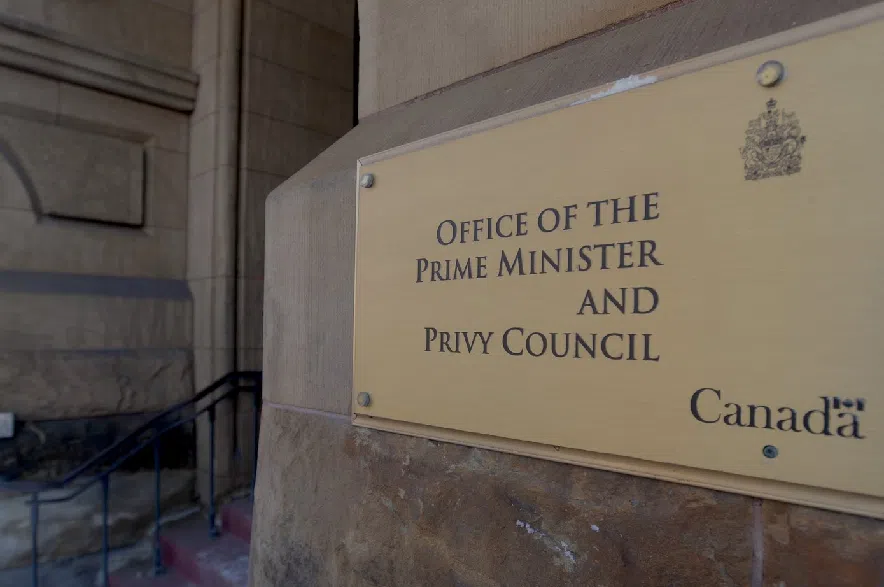Here is a roundup of stories from The Canadian Press designed to bring you up to speed …
Top secret status offered to provincial officials
Canada’s senior public servant has invited his provincial and territorial counterparts to apply for top secret-level security clearance as a way of fostering “healthy, transparent dialogue” on foreign interference and other threats.
In a July 11 letter to the heads of public services across the country, John Hannaford, clerk of the Privy Council, said that obtaining the clearance would allow the Privy Council Office and other federal security agencies to offer regular, intelligence-informed briefings.
The briefings would support the public service leaders’ efforts to advise provincial and territorial governments on policy development as well as their responses to “acute security events,” Hannaford wrote.
Interference inquiry to hear from party officials
A federal inquiry into foreign interference is scheduled to hear today from Bloc Québécois, Green and New Democratic Party officials.
The inquiry’s latest hearings are focused on the capacity of federal agencies to detect, deter and counter foreign meddling.
An emerging concern is the adequacy of party procedures to prevent foreign meddling from tainting candidate nomination processes.
Elections Canada has suggested possible changes to protect the nomination process from interference, including barring non-citizens from helping choose candidates and requiring parties to publish contest rules.
N.B. premier expected to call election today
A 33-day provincial election campaign is expected to officially get started today in New Brunswick.
Progressive Conservative Premier Blaine Higgs has said he plans to visit Lt.-Gov. Brenda Murphy this morning to have the Legislature dissolved.
Higgs, a 70-year-old former oil executive, is seeking a third term in office, having led the province since 2018.
The campaign ahead of the Oct. 21 vote is expected to focus on pocketbook issues, but the government’s provocative approach to gender identity issues could also be in the spotlight.
Massive shifts before B.C.’s election campaign
If the lead up to British Columbia’s provincial election campaign is any indication of what’s to come, voters should expect the unexpected.
It could be a wild ride to voting day on Oct. 19.
The Conservative Party of B.C. that didn’t elect a single member in the last election and gained less than two per cent of the popular vote is now leading the charge for centre-right, anti-NDP voters.
The official Opposition BC United, who as the former B.C. Liberals won four consecutive majorities from 2001 to 2013, raised a white flag and suspended its campaign last month, asking its members, incumbents and voters to support the B.C. Conservatives to prevent a vote split on the political right.
New Democrat Leader David Eby delivered a few political surprises of his own in the days leading up to Saturday’s official campaign start, signalling major shifts on the carbon tax and the issue of involuntary care in an attempt to curb the deadly opioid overdose crisis.
Voters head to polls in Ontario byelection
Polls are set to soon open in the eastern Ontario riding of Bay of Quinte, where voters will pick their next representative in the provincial Legislature.
It’s a byelection with a quick turnaround, as it takes place just one month after cabinet minister Todd Smith resigned the seat.
Smith won four successive elections in the region, securing nearly 50 per cent of the vote in the last two elections, but some experts and polls suggest it may be a closer race this time around.
The top two contenders appear to be Progressive Conservative candidate Tyler Allsopp and Liberal candidate Sean Kelly, both municipal councillors in Belleville.
Pressure still on oilsands group to cut emissions
Canada’s oilsands industry remains under pressure to reduce its greenhouse gas footprint, even as companies have clamped down on public communications in the wake of new anti-greenwashing legislation.
The Pathways Alliance — a consortium of six companies that have jointly committed to achieving net-zero greenhouse gas emissions from oilsands production — has been largely silent since June, when the federal government passed an amendment to Canada’s Competition Act containing a new anti-greenwashing provision.
But clean energy think tank the Pembina Institute said concerns about the new law shouldn’t prevent Pathways from pulling the trigger on its proposed $16.5-billion carbon capture and storage project.
—
This report by The Canadian Press was first published Sept. 19, 2024
The Canadian Press







